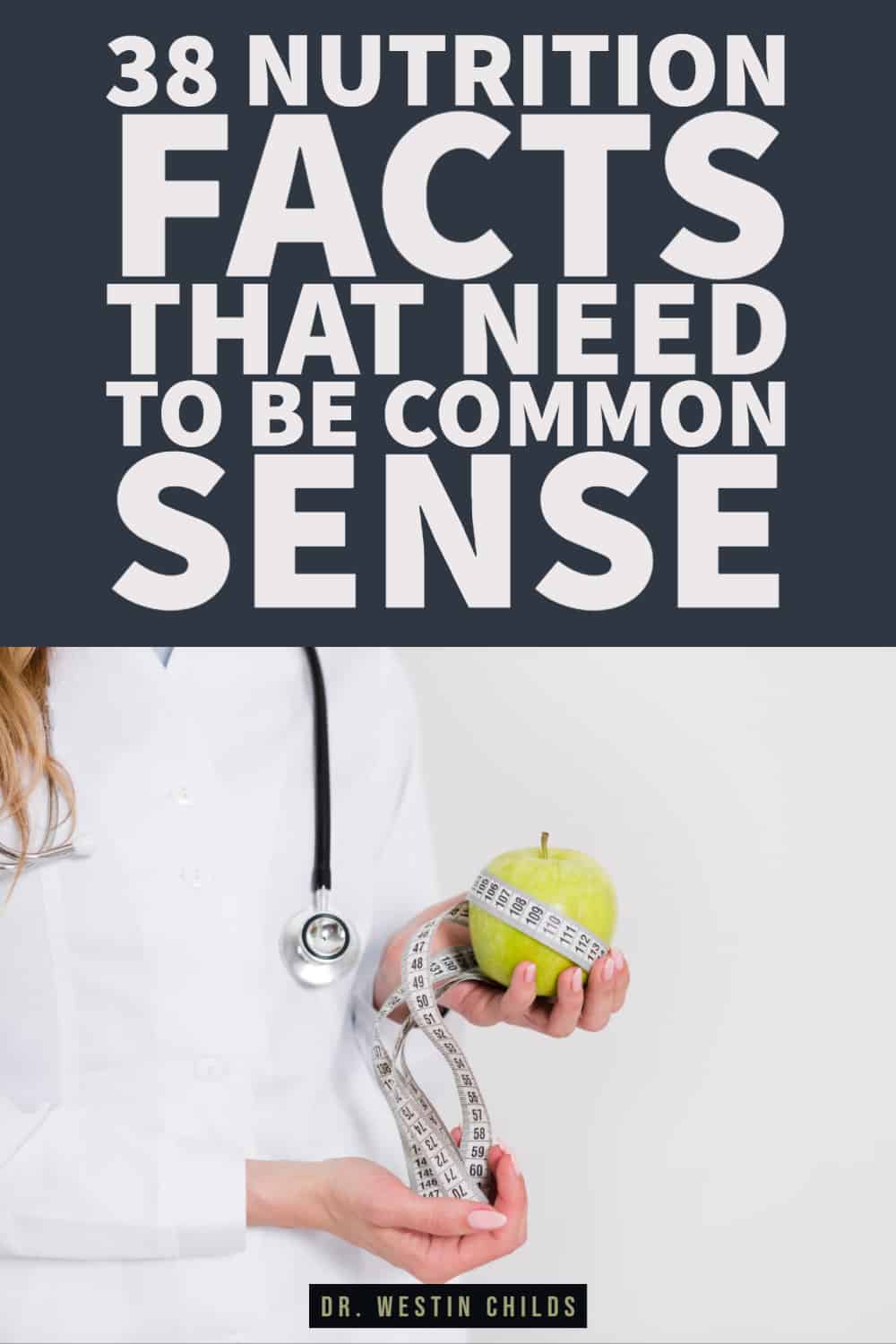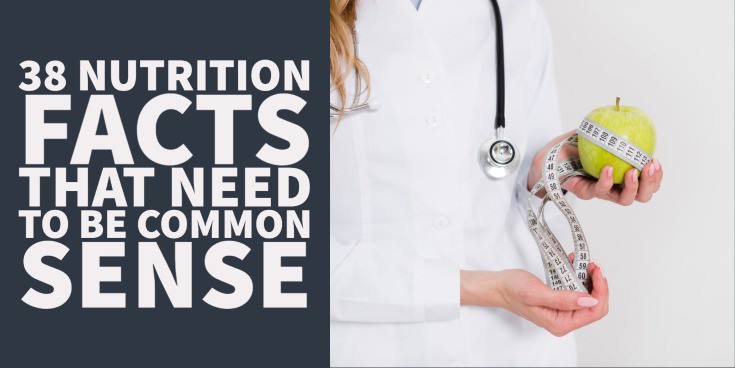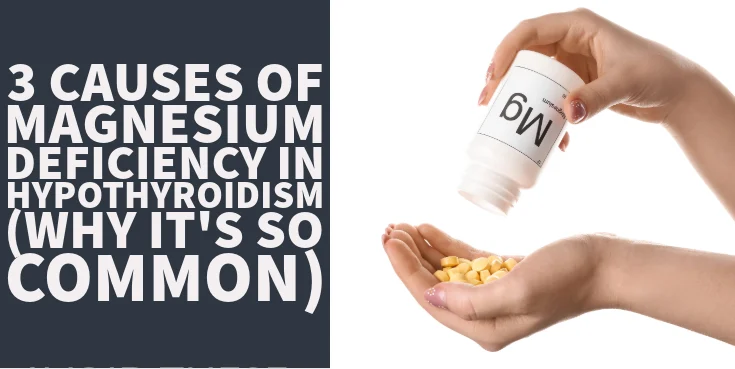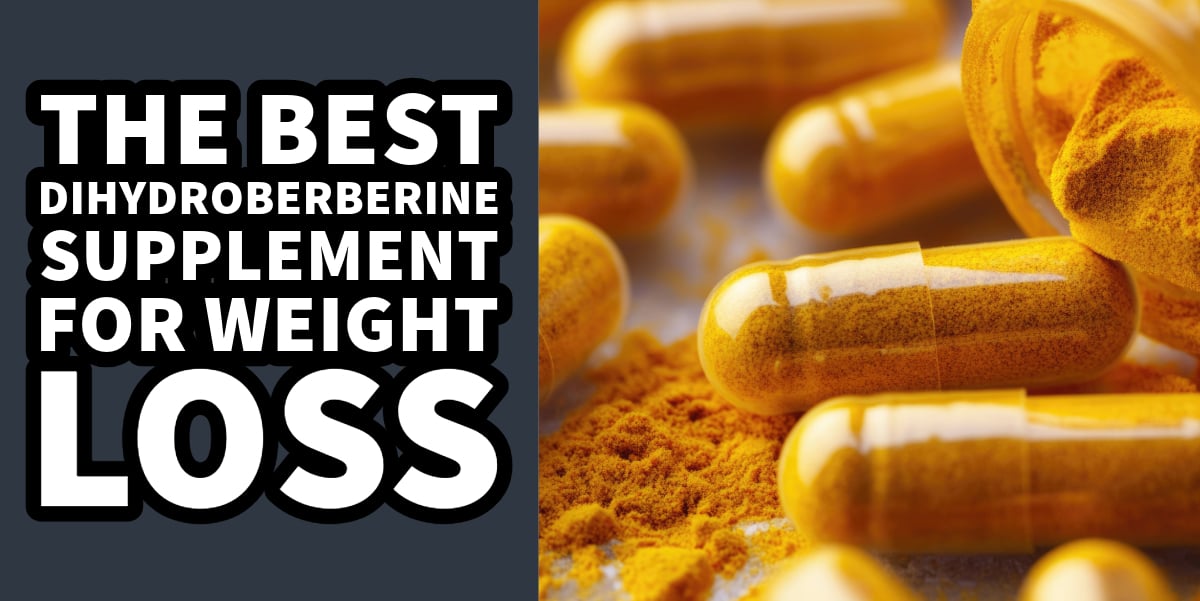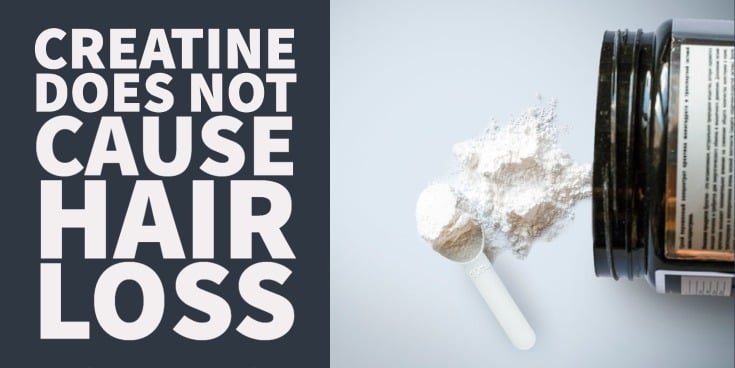Are you tired of hearing conflicting information about nutrition every time you open up Facebook or read a news article?
You aren’t alone!
The confusion that exists in the nutrition world only serves those people who stand to make money from the confusion.
Influencers and marketers are incentivized to make things seem more complicated than they really are because then they can sell you the solution.
If you’ve ever felt confused or annoyed at the conflicting information then I’ve got some good news for you…
Today we are going to talk about how to think about nutrition and healthy eating by discussing facts.
Understanding these basic facts will help you make better decisions about your health and cut through the confusion created by others.
Following these facts will help you build a foundation that will improve your overall health, thyroid health, and help you manage your weight.
So if you’ve ever felt confused about nutrition then this is for you:
1. There is no one size fits all diet that works for everyone
If you were to compare your body type to your neighbor you would find significant differences.
Differences in where you store fat, how easily you build muscle, your baseline hormones, your baseline thyroid status, and much more.
Given that you are both so different at the biochemical level, why on Earth would you assume that you both would do well on the same type of diet or foods?
It should go without saying, but many people get sucked into this trap. Especially if someone they know had success with a specific type of diet.
Just remember, everyone is different!
That being said you can follow some basic guidelines and rules for finding a diet that jives with your body and biochemistry…
- Eat real whole food that doesn’t have a label
- Try to eat vegetables with every meal
- Eat the rainbow
- Eat organic and grass-fed when possible
- Avoid refined carbohydrates, sugars, and zero-calorie sweeteners
- Cook only with coconut oil, extra virgin olive oil, and grass-fed butter
Use these guidelines as a place to start, and from there refine your diet to your personal preferences.
If you find you thrive on higher protein or more meat then go for it! Likewise, if the thought of meat turns you off then focus on more vegetables or fish.
If meat, protein, and low carb are your game you can find more information on the paleo diet here.
If your body thrives on a plant-based diet look into Dr. Dean Ornish’s diet here.
If you want something in between then I would recommend the Mediterranean diet.
2. When you eat consider the little bugs in your gut
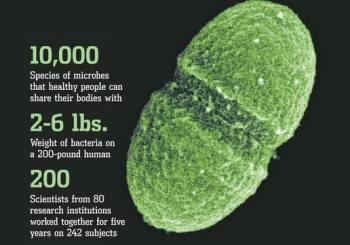

If you haven’t heard about the microbiome, let Dr. Jill Carnahan (expert in functional medicine and digestive diseases) fill you in…
“Research now shows that a dramatic alteration in diet such as eliminating sugar and refined carbohydrates can alter the microbiome in as little as 24 hours! We also know that the microbiome talks to the immune system and regulates cytokine production, which can cause inflammation and increase intestinal permeability. This is why the number one intervention I recommend for patients with autoimmune disease and leaky gut is change in diet to foster a healthy microbiome.”
Dr. Jill Carnahan
Your body contains around 100 trillion bacteria, which outnumber your human cells 10 to 1!
In other words, you are 10% human.
Well, not exactly, but you get the point.
Research is now finding that the type of bacteria you have in your gut changes based on what you eat, your stress (1), and how you exercise.
They are also finding that certain species of bacteria can even help you lose weight (2).
Remember that every time you eat you aren’t only feeding your body, but you’re feeding the little bugs in your gut.
They need and love prebiotic foods to grow, especially foods high in fiber.
Don’t neglect your little guys and they may just turn around and help you lose weight, balance your immune system, and help you feel better overall.
3. If you’re trying to lose weight stop weighing yourself and start measuring your body fat
Measuring your body weight is a notoriously inaccurate way to measure fat loss.
Despite this, you have people who can’t help but weigh themselves daily when they are trying to lose weight.
The problem is…
Once you start losing fat mass from exercise and dietary changes your body compensates by increasing muscle mass. This usually results in a wash when you measure weight (unless you have > 50 pounds to lose).
In other words, you could be losing fat mass (which is exactly what you want) but not see any changes on the scale even though you are losing weight.
A better way to assess how well your body is responding to changes is to measure your body fat percentage. This used to be expensive but nowadays you can get a fairly accurate reading with scales that have built-in bioelectrical impedance analysis.
It works by sending a current through the body and assessing the resistance. From there it estimates your total body water, fat-free body mass, and body fat.
If you don’t want to spend any money on a fancy scale then you can also measure your waist and mark your progress in inches lost.
4. Avoid low-fat diets for weight loss
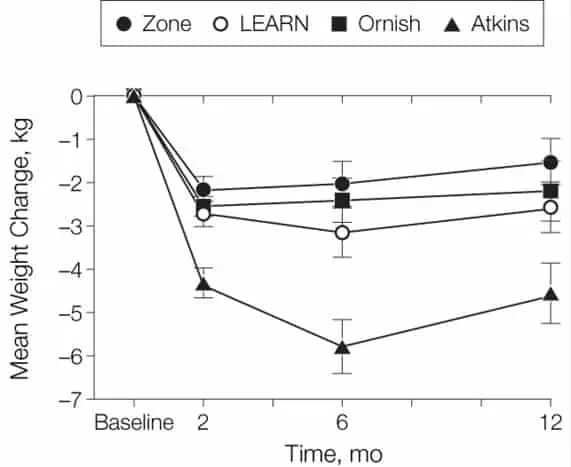
(The A TO Z Weight Loss Study: A Randomized Trial (3))
Low fat or no fat is synonymous with high sugar. For this reason, anything that claims to be low-fat or no-fat should be avoided at all costs.
Unfortunately, this low-fat diet is promoted heavily by doctors and nutritionists alike, despite the fact that it has been shown in many studies to be inferior to low-carb diets for weight loss (4) and has very little to no effect on heart disease (5).
If you like the idea of eating low fat then focus on real whole foods that are low in fat like fruits and veggies.
Avoid anything in the grocery store in a box or marketed as low fat, because these foods typically contain high levels of sugars and refined oils.
5. Eating a low glycemic load, anti-inflammatory diet with healthy fats and no added sugar or refined grains can help you with many different medical conditions…
From high blood pressure, autoimmunity, acne, aches, and pains to obesity, what you put in your mouth has an impact on your health.
I’m always amazed at what diet alone can do for patients.
In fact, before you start on medication for any medical problem it would be worth changing your diet to see if your problem persists.
A 3-4 week trial of a healthy diet is worth it, wouldn’t you say?
The Mediterranean diet is known to decrease the risk of cardiovascular disease (6),
AND…
It’s pretty clear that there is some association between diet and longevity (with blue zones around the world)…
So give this one a try.
6. Cholesterol isn’t the bad guy
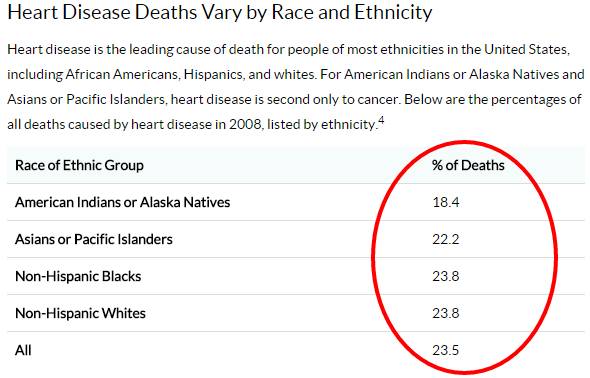
With heart disease as the leading cause of death in the United States, it’s easy to jump on the bandwagon of “good” and “bad” cholesterol.
The truth is something far more complicated.
We do find cholesterol at the scene of the crime (the blocked coronary arteries in the heart) and we do tend to blame them for the heart attack, but this isn’t the whole story.
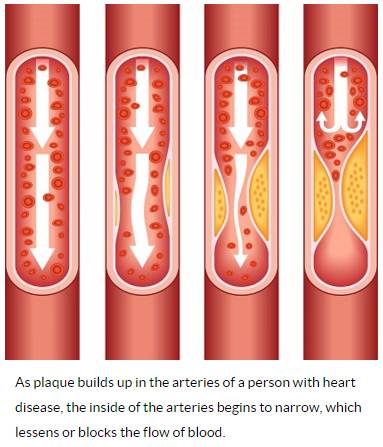
This logic is similar to blaming crime on the police because cops are found at crime scenes.
The truth is that cholesterol can’t run around in your blood without being carried in a protective protein-like ball called a lipoprotein.
It makes sense if you think about it, your blood is mostly water and cholesterol is fat. It’s like putting oil and water together, they just repel one another.
To prevent this our body creates a tiny little protein package to carry around the cholesterol through the body.
Research suggests that the actual number of cholesterol-carrying particles (7) is what increases your risk of heart attack, not the cholesterol number itself.
Unfortunately, the only way to test for your LDL particle number is with the NMR lipoprofile, so if you want to look at this you will most likely have to ask your doctor for it.
7. “Gluten-free” and “organic” doesn’t automatically mean healthy
Don’t be confused into thinking that gluten-free cookies or cupcakes are somehow better for you than regular cupcakes or cookies.
Likewise spending the time to make your own homemade versions of high sugar-containing gluten-free baked goods at home still isn’t good for you either.
Stick to foods that are naturally gluten-free and stay away from gluten-free junk food (whether you purchase it pre-made or make it yourself).
8. You can’t out-exercise a bad diet
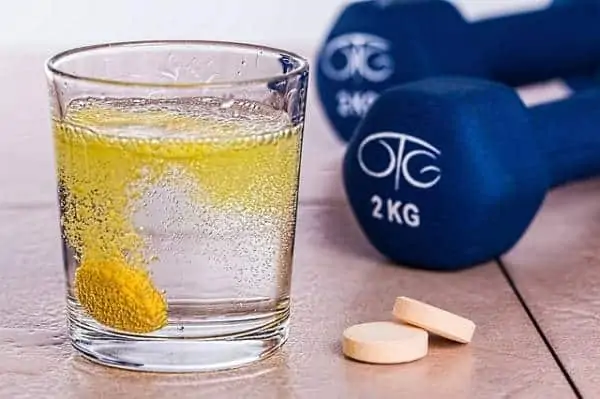
It should go without saying, but no matter how much you exercise you simply cannot out-exercise a bad diet.
Just look at the numbers: if you consume a 20-ounce soda, you would have to walk four and a half miles to burn it off.
Calories aside, this example doesn’t take into account the impact that sugar has on insulin levels and how that affects other hormones such as testosterone, estrogen, and thyroid hormone.
The moral of the story:
Exercise is still very important, but you have to include a good diet if you want to see any changes.
9. There is such a thing as skinny fat
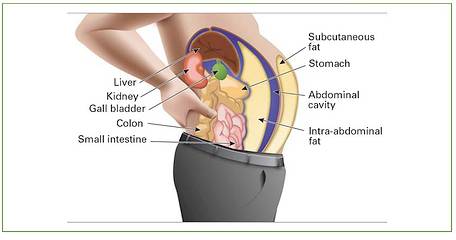
I’m sure you’ve heard the term skinny fat. Or thin on the outside fat on the inside.
These names refer to a condition where people can have all the metabolic problems that overweight people have, while walking around with a normal BMI or weight.
Many people who aren’t overweight falsely believe that they have nothing to worry about when in fact many of these patients still have the same risk of heart attack, stroke, Alzheimer’s, and cancer risk as obese people.
How can you tell if you are skinny fat?
The best way to test is with a blood test called the Hgb A1c which tests your average blood sugar.
If your Hgb A1c is > 5.7 and you have normal body weight, then you most likely are skinny fat.
Many people who fall into this category are people that can eat “whatever they want” without gaining weight. They consume tons of sugar, flour, and carbs and don’t seem to gain a pound.
While they may not gain weight, they are still sick on the inside so don’t let that fool you into thinking they are healthy just based on their weight.
10. When looking at health food labels don’t forget the “added sugars”

If you are like most people then you probably have trained yourself to look at the calorie content of food when you read the nutrition facts panel.
While calories are important, you may be sabotaging your weight loss efforts using this method.
Don’t forget to look at the “added sugars” on the food label, you can find this under the carbohydrates portion of the food label.
The added sugars represent sugar that has been added to the food in addition to whatever natural sugars the food already possesses.
As a general rule, do not eat more than 25g of added sugars per day. This recommendation comes from the WHO.
The scary part?
Many “healthy” and “low fat” foods can have as much as 20-30g of added sugar per serving.
Take for instance “healthy” vanilla-flavored greek yogurt. This little sugar bomb (depending on the brand) contains as much as 20g of sugar in a small self-serve package. That’s almost the entire amount of sugar you should eat in an entire day in a small yogurt cup.
When you start looking at food labels you will see just how much added sugar you are eating every single day.
11. High-fat dairy will help keep you thin
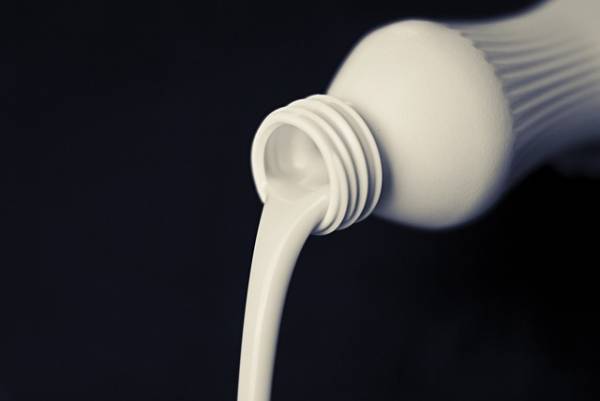
For years nutritionists and doctors have been telling you that eating fat will make you fat. It turns out that when you look at the scientific literature this doesn’t seem to be the case, especially when it comes to dairy.
Take for instance this study (8) which is a meta-analysis of 16 different studies and it shows that there is an inverse relationship between eating full-fat dairy products and obesity.
Put into simple terms: people who ate diets with more fat were skinnier than people who ate diets with less fat.
While it’s still not completely understood why full-fat products make you thinner it’s thought to be because of the beneficial compounds found inside them such as butyrate, phytanic acid, and conjugated linoleic acid.
Next time you’re at the store ditch the skim milk and go for the whole milk.
Your taste buds and your waistline will thank you.
12. Eating fat won’t make you fat

The last 50 years of nutritional science could easily be termed as the ‘great fat scare’. During this time we were constantly told that eating fat will clog your arteries and can cause you to gain weight.
It turns out this couldn’t be farther from the truth…
We’ve seen in several journals, including the British Medical Journal (9) that eating saturated fats doesn’t actually increase your risk of cardiovascular disease or obesity.
We also have plenty of studies (10) that show that eating HIGH-fat diets (I’m talking up to 70% of daily calories as fat) actually helps people LOSE weight, better than low-fat diets.
13. Your diet influences your sex hormones

Ever wonder why so many women are suffering from PCOS, infertility and estrogen dominance? Look no further than insulin resistance and high sugar diets.
Diets high in sugar and refined carbohydrates increase insulin levels which directly affect estrogen and progesterone levels. These changes result in either an absolute or relative decrease in the ratio of estrogen to progesterone (in favor of too much estrogen).
Diet also impacts men in a similar way by decreasing testosterone! This is why there are so many “Low T” clinics popping up everywhere. The problem is low testosterone, it’s a bad diet.
Are you suffering from estrogen dominance or sex hormone-related problems? Take a look at the 10 steps I outlined in a previous post about how to take care of endometriosis naturally.
14. You don’t need to eat every 3 hours for your metabolism
For some reason, many people believe that in order to boost your metabolism and lose weight you must eat every 2-3 hours.
Despite the fact that several studies (11) have shown this isn’t the case, it just doesn’t even make sense from a practical or evolutionary standpoint.
It’s also more important to spend more hours between meals to sensitize your body to insulin.
Don’t worry about your metabolism (12), it will be fine. Focus on eating high-quality meals when your body is hungry – NOT when a clock says you should eat.
15. Stop listening to the media about nutrition
Remember that the media is focused on getting attention. They aren’t overly concerned about science or truth.
Because of the media, it seems like every other week there is conflicting information.
Butter is good. Butter is bad. Meat causes cancer. Meat is healthy. Etc.
Most of the time the headlines from the media are gross exaggerations of small findings that are taken out of context.
Stick to scientific journals and experts in the field as your source of quality information.
16. Also… stop listening to your doctor about nutrition advice!
I hate to say it, but many doctors are behind the times when it comes to nutrition.
It turns out that doctors only get about 19 hours of nutrition education (13) during their entire training.
This is pretty sad when you consider that food is far and away the most powerful medication and that up to 40% of annual deaths from the 5 leading US causes are preventable (14).
Another concerning statistic?
The average doctor is practicing medicine 17 years behind the current scientific studies (15)!
Not all doctors are behind the times, but in the meantime, it’s better to get your dietary advice from those who are up to date on the current science.
17. Eggs (including the yolk) are healthy for you!
Eggs are not tiny little cholesterol bombs that are going to clog your arteries.
Yes, they do contain cholesterol but eating eggs doesn’t increase your cholesterol in the way you think.
This study (16) showed that eating eggs increases the amount of large buoyant *healthy cholesterol particles and changed the pattern of cholesterol to one that is actually healthy for the heart.
Eggs also contain antioxidants, lutein, and zeaxanthin, which can help prevent age-related macular degeneration.
Next time you’re at the store opt for cage-free whole eggs, not the yolk-free substitute.
18. Stick to the outside of the grocery store to eat healthily
If you want to eat healthy the safest place in the grocery store is the outside perimeter.
Grocery stores are set up so the healthy foods are on the outside and the bad foods are on the inside.
When you’re shopping practice the “eye-ball test”…
That is – you should be able to eye-ball food and tell if it’s real or not. If it’s fake, then chances are high that it’s not healthy for you.
Stick to the outside of the grocery store and practice the eye-ball test next time you go shopping.
19. Fruit juices are no better than soda
Unfortunately, many people believe that fruit juices are healthy for you.
This couldn’t be farther from the truth.
In fact, fruit juices have the same impact on your hormones, blood sugar, and insulin as sugar-sweetened beverages (17).
This is primarily because fruit juices don’t have any fiber in them. When you eat whole fruit the absorption of sugars is slowed by the fiber that acts as glue in your intestines.
Without the glue, your body rapidly absorbs all of the sugar!
Stay away from fruit juices, especially if you have kids.
20. Sugar-sweetened beverages may be the most unhealthy food in your diet
Added sugar in liquid form is the worst.
Sugar-sweetened beverages destroy your hormonal systems, cause changes in insulin and lead to increased levels of diabetes (18).
One of the major problems with drinking your sugar is that your brain doesn’t realize how many calories you are getting (19).
In return, it doesn’t compensate to lower the amount of food you eat. You just keep eating more and more (20).
Cut out sugar-sweetened beverages from your diet. It may be the healthiest thing you do all year.
21. You should be eating naturally fermented foods
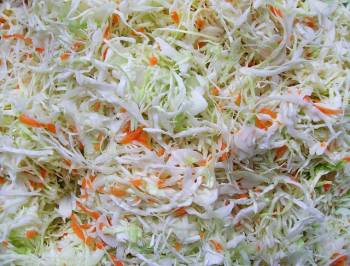
If you aren’t consuming naturally fermented foods you are missing out on a huge health benefit.
From kefir to sauerkraut – these foods are loaded with beneficial probiotics, prebiotics, and vitamins.
Take kefir for instance…
Studies (21) show that this probiotic drink contains beneficial yeasts and bacteria that help lower inflammation, fight off bad bacteria, lower blood pressure, and improve immunity!
If you like taking probiotic supplements, then don’t miss out on natural probiotic foods. They are loaded with WAY more probiotics and have more diverse microbial populations.
22. Low-carb diets shouldn’t be ultra-high in protein

While low-carb diets can be great for weight loss (22) (they beat out all other diets in most studies). There are some things you should know to prevent self-sabotage.
- Low carb means low refined carbs – It also doesn’t mean any carbs. To get the best results cut out sugar, and refined grains (bagels, pizza, bread, pasta, etc.) but KEEP in carbs from vegetables and fruits like berries!
- Don’t replace your carbs with only protein – Cut out the bad carbs, keep the good carbs (veggies/fruits) and replace the carbs with a combination of healthy fats (olive oil, avocados, coconut oil, etc.) and healthy proteins. High amounts of protein can still stimulate insulin and prevent weight loss during low-carb dieting.
- Don’t forget to eat vegetables! Veggies are still considered carbs but they hardly have any effect on your insulin levels because they are loaded with fiber and contain very little free sugars.
- Don’t severely restrict your calories – The low-carb diet causes changes to your hormones (especially insulin) that result in weight loss. Severely restricting your calories can lower metabolism by up to 30% in as little as 25 days (23).
Try these tips next time you decide to hop on a low-carb diet for weight loss.
23. Stop counting calories, they matter but not like you think

Everyone loves to talk about calories in and calories out.
More important than the number of calories you consume is what your body is doing with those calories.
Let me explain…
Hormones direct what your body does with calories. Are your insulin levels elevated? Then your calories will be shunted into your fat cells.
Are your estrogen levels or cortisol levels high? Then calories will be shunted to your fat cells.
Are insulin levels low? Then your calories will be shunted to your muscles and other tissues.
Also, don’t forget that eating higher amounts of protein (24) results in an automatic reduction of calories without even thinking about it.
Stop counting your calories and focus on eating real whole foods that impact your hormones.
24. Insulin resistance is linked to high blood pressure, high cholesterol, cancer, and Alzheimer’s
Many terrible diseases are associated with high insulin resistance and diabetes.
This is both good and bad.
Bad in the sense that we are doing this to ourselves, but in the sense that you can prevent these diseases!
Take for instance Alzheimer’s disease. Recent studies (25) have now linked insulin resistance in the brain with impaired memory.
The same is true for cancer, high blood pressure (26), and high cholesterol.
Moral of the story?
Start making lifestyle changes to improve your health and prevent these terrible diseases.
25. Yes, junk food is addictive

Ever get a craving in the middle of the night for chocolate or ice cream?
You aren’t going crazy but you may have an addiction to junk food.
Not only do food addictions exist. But certain chemicals in gluten, dairy, and cheese have addictive properties.
Not only that, but the food industry has spent millions of dollars to research what foods trigger your brain to constantly snack.
These chemicals actually activate the same receptors (27) in the brain that are activated when people drink alcohol or use drugs.
It may make sense now why so many diets fail and why 100-calorie snack packs don’t work for weight loss.
It’s like giving an alcoholic 1 sip of alcohol per day and expecting them to kick their addiction.
Not only is sugar available on every corner, but food addiction also isn’t taken as seriously as it should be.
If you are struggling with addictive behavior towards food the best way to kick the habit is to completely eliminate the food from your diet.
26. Never trust health claims on processed foods
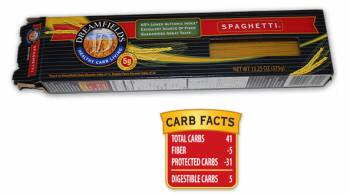
The bottom line:
The food industry doesn’t have your best interests in mind.
They are looking to sell more products and make more money.
Not only that but they are GREAT at advertising and marketing.
They know just what to say to get you to buy their foods. They use low fat, low carb, nonfat, and high fiber to their advantage.
If it sounds too good to be true then it probably is.
One of the most recent examples is the high fiber and low net carb marketing gimmick that certain brands are using.
They want you to think that by increasing fake fiber in their foods you can eat all the carbs you want without having an impact on your blood sugar and insulin levels.
This has been shown to be entirely untrue. The truth is that these foods still increase your blood sugar, mess up your hormones and increase your risk of diabetes just like regular versions of the food.
You can find more information about the Dreamfields pasta fraud here.
27. If the food you are eating was made in a factory, it’s not good for you
Many people struggle to understand what food is actually healthy for them.
I’ve already talked about the eyeball test before and how you can use that to help you find healthy foods.
Another good strategy is this: if the food was made in a factory, don’t eat it.
Eat the food that God made, not the fake foods that are man-made.
28. Stop focusing on the glycemic index and start paying attention to glycemic load
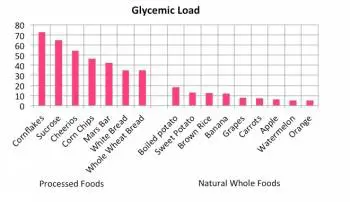
Focusing solely on the glycemic index without taking into account glycemic load can be very misleading.
The glycemic index focuses on the impact that certain foods have on your blood sugar.
The glycemic load says how much of that certain food you have to eat in order to raise your blood sugar.
Let’s use an example:
Take for instance watermelon. It’s pretty high on the glycemic index (72) but its glycemic load is about 4. That means if you looked strictly at the glycemic index you would assume that watermelon is bad for you.
Instead of focusing on the glycemic index alone, make sure to look at the glycemic load.
29. Trans fat is poison to your body
If you haven’t already stopped eating trans fat now is the time.
Trans fat has been shown to increase the risk of heart disease (28) in several studies.
Still not sure if you are eating trans fat? Check out these foods that still contain high levels:
- Canned frosting
- Packaged pie
- Frozen pizza
- Margarine
- Coffee Creamer
Avoid these foods at all costs!
30. Cereal is sugar in milk, treat it like a dessert, not a breakfast meal
Do you know what the difference is between sugar with milk in it or cereal with milk in it?
There is no difference in your body from the neck down…
It’s time to consider cereal as a dessert and not a breakfast cereal.
If you are struggling with obesity or trying to lose weight, make sure you aren’t sabotaging your efforts by eating breakfast cereal.
It’s hard to believe because it’s such a quick and convenient food to eat. But cutting it out may be just what you need.
31. Fasting can balance hormones, help you lose weight, and cure diabetes

Let’s tackle this one head-on.
Adding intermittent fasting to your weight loss routine just may be the best thing you can do.
Fasting used to be a normal part of life. In fact, the cycle of feast and famine was part of human life for thousands of years.
The difference between now and back then was that the feast was balanced by the famine.
Nowadays, we have nothing but feast all year round!
Studies have shown that small periods of fasting (29), as little as two times per week can help you reduce insulin levels and lose weight!
Don’t let the word fasting scare you.
You can try intermittent fasting by simply avoiding eating after 7 pm and don’t start eating until 11 am the following morning. Do this twice per week and you are set.
Doesn’t sound too bad, does it?
32. Eating fat and protein help keep you full
We’ve touched on this before but it’s worth talking about again.
Not only does eating fat not make you fat, but it also keeps you full for long periods of time!
The same is true with protein.
When you increase the number of healthy fats and healthy proteins, your body automatically reduces the number of calories it wants and your blood sugar stays stable.
33. Eating healthy doesn’t have to be expensive
This is a lie that the food industry wants you to believe.
You’re made to think that the “value menu” from Mcdonald’s is cheaper than buying your own groceries.
This couldn’t be farther from the truth!
If you shop wisely and use help from some of these guides you will find healthy nutritious food for a very reasonable price! Cheaper than eating out and much healthier.
Also, don’t forget that while fast food may seem cheaper right now, you will pay for it in the long term with costly medical bills 20-30 years later.
34. Cooking with spices can help you get healthier and lose more weight

Not only is cooking for yourself incredibly healthy you also get the added benefit of nutritious spices!
Take turmeric for example:
This spice may just be the healthiest spice on the entire planet.
It’s been shown to reduce inflammation, kill cancer cells, prevent diabetes (30) and so much more!
This is only the tip of the iceberg. There are so many other healthy spices.
35. Diabetes and prediabetes can be completely reversed with fasting and dietary changes
Nowadays diabetes is treated as a chronic and progressive disease.
Put in simple terms:
Once you get diabetes you will have it for life and it will slowly get worse over time.
This isn’t true at all!
Diabetes can be completely reversed with dietary changes and fasting regimens.
You can read more about Dr. Fung here, who has a clinic that specializes in reversing diabetes through dietary changes.
36. Dark chocolate can be healthy for you!

Ok, ok, so maybe you already knew about this one. But it’s worth mentioning again.
Dark chocolate is loaded with antioxidants and polyphenols that can help fight inflammation and obesity.
The catch?
You need to eat 70% dark chocolate or higher to get the most benefits.
AND, you shouldn’t have more than 1-2 ounces per day.
But still… it’s chocolate.
37. Eat less + exercise more = 99.9% failure rate
Even if you haven’t read the study (31) you probably know from personal experience that the mantra of eat less and exercise more just doesn’t work.
How do you know?
Because we’ve all tried it at one point or another.
The truth is this:
if you approach weight loss from the standpoint that calories are all that matters, you will fail 99% of the time.
If you want to attack weight loss head-on, then you need to keep real whole foods center stage with the goal to balance your insulin and other hormones.
38. Yo-yo dieting can lower your metabolism by up to 20% for years
Not only does calorie restriction not result in weight loss, but it can also wreck your metabolism.
Studies have shown that chronic yo-yo dieting can lower your metabolism by up to 20% for years to come.
Don’t fall into this weight loss trap.
Scientific References
#1. http://www.ncbi.nlm.nih.gov/pubmed/22314561
#2. http://www.ncbi.nlm.nih.gov/pmc/articles/PMC3963190/
#3. http://jama.jamanetwork.com/article.aspx?articleid=205916
#4. http://www.ncbi.nlm.nih.gov/pubmed/16391215
#5. http://jama.jamanetwork.com/article.aspx?articleid=202339
#6. http://www.ncbi.nlm.nih.gov/pmc/articles/PMC2684076/
#7. http://www.ncbi.nlm.nih.gov/pmc/articles/PMC2720529/
#8. http://www.ncbi.nlm.nih.gov/pubmed/22810464?dopt=AbstractPlus
#9. http://www.bmj.com/content/347/bmj.f6340
#10. http://www.ncbi.nlm.nih.gov/pmc/articles/PMC538279/
#11. http://www.ncbi.nlm.nih.gov/pubmed/9155494
#12. http://www.ncbi.nlm.nih.gov/pubmed/19943985
#13. http://www.ncbi.nlm.nih.gov/pubmed/20736683
#14. http://www.cdc.gov/media/releases/2014/p0501-preventable-deaths.html
#15. http://jrs.sagepub.com/content/104/12/510.full
#16. http://www.ncbi.nlm.nih.gov/pubmed/16340654?ordinalpos=1&itool=EntrezSystem2.PEntrez.Pubmed.Pubmed_ResultsPanel.Pubmed_RVDocSum
#17. http://www.thelancet.com/journals/landia/article/PIIS2213-8587(14)70013-0/fulltext
#18. http://care.diabetesjournals.org/content/33/11/2477.full
#19. http://www.ncbi.nlm.nih.gov/pubmed/10878689
#20. http://www.ncbi.nlm.nih.gov/pmc/articles/PMC1829363/
#21. http://www.ncbi.nlm.nih.gov/pmc/articles/PMC3833126/
#22. https://www.ncbi.nlm.nih.gov/pmc/articles/PMC5672079/
#23. http://www.ncbi.nlm.nih.gov/pubmed/7076517
#24. http://ajcn.nutrition.org/content/82/1/41.abstract
#25. http://ajcn.nutrition.org/content/82/1/41.abstract
#26. http://ajcn.nutrition.org/content/82/1/41.abstract
#27. http://www.ncbi.nlm.nih.gov/pmc/articles/PMC2851032/
#28. http://circ.ahajournals.org/content/115/14/1858
#29. http://www.ncbi.nlm.nih.gov/pmc/articles/PMC4257368/
#30. http://www.ncbi.nlm.nih.gov/pmc/articles/PMC4257368/
#31. http://www.ncbi.nlm.nih.gov/pubmed/26180980
